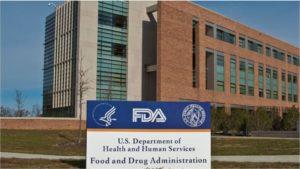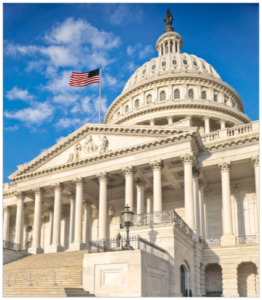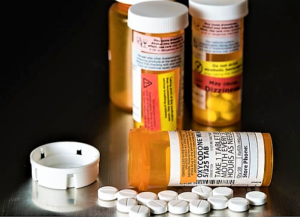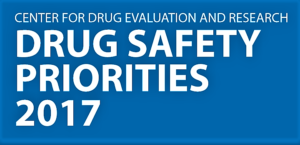- Study: With FDA Input, Compassionate Use Programs Appear to Work Well (ptcommunity.com)Availability of Investigational Medicines Through the US Food and Drug Administration’s Expanded Access and Compassionate Use Programs (jamanetwork.com)
When terminally ill Americans receive experimental medicines through so-called “compassionate use” programs, they typically only get these drugs after extensive tests for safety and effectiveness, a recent study suggests...This means that sufficient evidence of safety and effectiveness has been generated, ensuring that terminally ill patients are not being exposed to therapies that are unlikely to be beneficial or unsafe...this...suggests that companies and the FDA are providing expanded access to experimental therapies in a responsible way that protects patients and the public health...This system may change under The Right to Try Act of 2017, which would let companies decide whether to give patients experimental therapies without any input from the FDA...The chances of a drug not helping a patient or causing serious harm are higher when medicines are earlier in development, Paul Beninger, MD, MBA, of Tufts University School of Medicine...This is much more likely with Right to Try than with the current compassionate use system…
- FDA sends warning letters to nine online marketers over opioids (reuters.com)
The...Food and Drug Administration...sent warning letters to nine online networks operating a total of 53 websites to stop illegally marketing unapproved versions of opioid medications...The regulator said... it is taking additional steps with these warning letters by going right to the source of the illegal supply of unapproved and misbranded versions of opioid drugs, including tramadol and oxycodone...The internet is virtually awash in illegal narcotics...Drug dealers and rogue website operators are using the internet to fuel the opioid crisis...The regulator has requested responses from the nine companies within 10 working days, or they may be subject to product seizure or injunction.
- Right-to-try bill headed for vote puts bigger burden on FDA to protect patients, Gottlieb says (statnews.com)
The House is set to take up a controversial “right-to-try” bill next week — and if it passes, the Food and Drug Administration will have to work harder to protect patients than it would if a different version of the legislation were advancing, Commissioner Scott Gottlieb told STAT...right-to-try legislation aims to give terminally ill patients a different pathway to access experimental treatments that are not FDA approved...“In terms of making sure that it balances [access to experimental drugs] against appropriate patient protections, I think the Walden bill gives us less work to do,” Gottlieb said. “With the Johnson bill, we’d have to do a little bit more … in guidance and perhaps in regulation to achieve some of those goals, and I think those are the goals that Congress wants us to achieve.”
- Legislation looks to limit length of opioid prescriptions (biopharmadive.com)
Senate Health Committee Chairman Lamar Alexander...is offering drafts of two pieces of legislation aimed at addressing the opioid crisis...One measure would attempt to limit overprescribing by allowing the Food and Drug Administration to require drug manufacturers to package certain opioids in blister packs, which would allow for a set dose, such as a seven-day supply...Rather than restrict the number of days on opioid prescriptions, James Madara, CEO of the American Medical Association, wrote a letter...suggesting further research "that specifically identifies best practices in settings ranging from surgical to the emergency department."...Alexander's other proposal involves improved coordination between the FDA and Customs Border Protection. The bill would look to improve the ability to find and seize illegal drugs, such as fentanyl, at the border. It would seek to ensure the two agencies have the technology, facilities and staffing needed...
- FDA suggests new reimbursement idea for antimicrobial drugs (pharmaceutical-technology.com)
The Food and Drug Administration has published a statement from its commissioner Scott Gottlieb proposing a new reimbursement model for antibiotics and antimicrobials, which it believes will help achieve associated public health goals and overcome investment challenges...The FDA’s idea is that instead of hospitals being reimbursed for antimicrobials on a per-use, which it claims is hindering research and development in the field, they will be reimbursed for licences for certain antimicrobials drugs that target multi-drug resistant infections...The FDA believes this model will help to achieve public health goals because it would ‘create a natural market for drugs that meet certain public health criteria, by providing a predictable return on investment and revenue stream through more foreseeable licensing fees’ and ‘it would put the institutions fully in charge of stewardship of these important medicines. Once they purchase the ability to access a drug, they would be stewards of its use up to a certain number of annual doses’...the proposal would address investment challenges faced by producers of antimicrobials that target multi-drug resistant organisms because it may offer a ‘pull incentive’ that can create a predictable market for antimicrobials with a narrow set of public health applications. In addition, it could disconnect return on investment on these drugs from the volume of the drug that is used...
- The ‘cruel joke’ of compassionate use and right to try: Pharma companies don’t have to comply (statnews.com)
...the FDA has a compassionate use program to allow people access to experimental drugs, it can’t compel a company to provide those drugs. The newly signed “right-to-try” law doesn’t either...the Food and Drug Administration calls its expanded access program, also known as compassionate use. It governs the use of an investigational medicine that has not been approved by the FDA outside of a clinical trial...Here’s how it is supposed to work. A physician caring for a patient with a terminal illness who has exhausted all other treatment options and isn’t eligible for a clinical trial appeals to the pharmaceutical company to provide an investigational drug that has undergone at least a Phase 1 trial, which studies the safety of a drug. If the pharmaceutical company agrees, the treating physician applies to the FDA for approval for expanded access to the investigational drug...Large pharmaceutical companies are notoriously risk averse when it comes to expanding access to medications that are still in the testing phase. Many refuse to grant access to investigational drugs outside of clinical trials...One fear they have is that an adverse event, like an injury or death — even if it is not directly due to the medication — will derail a company’s ability to push a drug forward for FDA approval...Pharmaceutical companies also worry that if an experimental medication is given to one patient through compassionate use, it must be given to all patients who request it. In the case of rare diseases...this could mean that a company would have trouble enrolling enough patients when it eventually opens a clinical trial...
- CDER Publishes Drug Safety Report – FDA’s Center for Drug Evaluation and Research has published its second annual report on key safety programs and activities. (biopharminternational.com)
...FDA’s Center for Drug Evaluation and Research released its second annual Drug Safety Priorities report, which details drug safety initiatives carried out by CDER and FDA. The report highlights drug safety program milestones and gives an update on goals achieved in 2017. Efforts by FDA to ensure drug safety science, surveillance, and oversight are discussed...Detailed in the report are the agency’s efforts on pharmacovigilance, medication errors, and risk management...The report also goes into detail about the agency’s views on how real-world evidence can advance drug safety. An update on the agency’s efforts to combat the opioid crises is also provided...
- AbbVie slammed by FDA for improper handling of Humira death complaints: report (fiercepharma.com)
A number of AbbVie products coming out of its North Chicago, Illinois, manufacturing facility have been tied to death complaints, including its mammoth blockbuster Humira, and the FDA says the drugmaker has not done enough to investigate those complaints...FDA inspectors found that AbbVie had received five complaints tied to deaths after taking Humira and Venclexta. While the drugmaker reported those, it didn't go back and compile historical data about death complaints tied to drugs coming from the same lots. It turns out those lots had been tied to another 8 to 11 complaints each...an AbbVie spokeswoman countered the FDA observation, saying the company “investigates all complaints where a death has occurred during the use of our products,” and that “written complaint procedures are in place to investigate, analyze and resolve complaints.”...The FDA also found AbbVie's procedures for handling death complaints for products made at the plant “inadequate.”...no document showed that AbbVie evaluated complaints to see if there were other ones for nearby lot numbers or different strengths, or that it examined the reserve sample...the agency also warned AbbVie for not examining reserve samples at least once a year for evidence of deterioration, and for its failure to investigate drug batches manufactured close to a problematic one.
- Trump signs ‘right to try’ drug bill (thehill.com)
President Trump signed a bill...allowing terminally ill patients access to experimental medical treatments not yet approved by the Food and Drug Administration...Dubbed "right to try," the law's passage was a major priority of Trump and Vice President Pence, as well as congressional Republicans..."Thousands of terminally ill Americans will finally have hope, and the fighting chance, and I think it's going to better than a chance, that they will be cured, they will be helped, and be able to be with their families for a long time, or maybe just for a longer time," Trump said at a bill signing ceremony at the White House, surrounded by terminally ill patients and their families...Most Democrats and public health groups oppose the bill, arguing that it could put patients in danger...FDA oversight of access to experimental treatments exists for a reason — it protects patients from potential snake oil salesmen or from experimental treatments that might do more harm than good...Opponents also argue it gives “false hope” to patients, since drugmakers aren’t required to give unapproved medicines to patients who ask for them...Supporters say, however, it will provide new treatment opportunities for terminally ill patients who have exhausted existing options...
- Drug Supply Chain Security: OIG Finds Pharmacies Received Most Tracing Information (raps.org)
A new report from the Department of Health and Human Services’ Office of Inspector General found that among a sample of 40 pharmacies, all received at least some of the required drug product tracing information from their supply chain partners, though many said they are not reviewing the information...Under the Drug Supply Chain Security Act, dispensers, including independent, chain and hospital pharmacies, are required to receive complete tracing information before accepting ownership of a drug shipped from a manufacturer or wholesaler...“Although dispensers are generally implementing the requirements for drug product tracing, missing information and a lack of awareness of DSCSA requirements raise concerns that a complete tracing record for a drug product may not always be available to support investigations of suspect and illegitimate drug products in the supply chain,” OIG said...OIG recommends (and FDA concurred) that FDA offer educational outreach to dispensers of drugs to ensure they understand their responsibilities in receiving complete tracing information from supply chain partners before accepting ownership of such pharmaceuticals...










